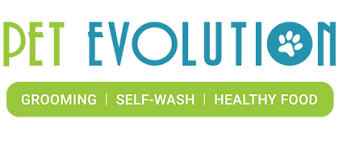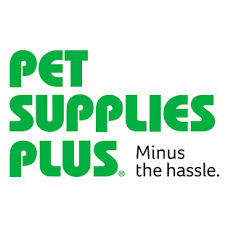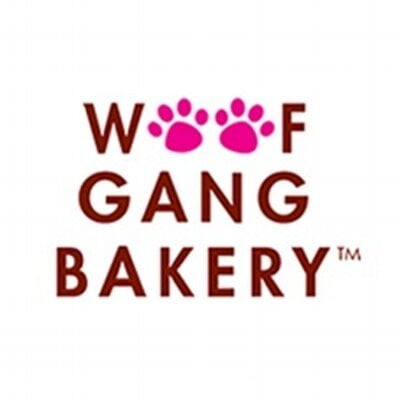Pet Evolution Franchise in 2025: Costs, Fee & FDD
Discover the growth potential of Pet Evolution, a leading franchise in the booming pet care industry. Learn about their holistic approach, investment requirements, and how franchisees benefit from strong customer loyalty and comprehensive support.

Table of Contents:
Pet Evolution is a unique and growing franchise in the pet care industry, founded by passionate animal lovers who identified a gap in the market for healthier, more holistic pet products and services. The founders, Rian Thiele and Mike Osborn, opened the first Pet Evolution in Minnesota, aiming to create a space where pet owners could find high-quality pet food, safe grooming services, and knowledgeable staff. Their mission was not just to sell products but to improve the lives of pets through education, wellness, and responsible pet ownership.
At its core, Pet Evolution focuses on offering high-quality, nutritious pet food, with an emphasis on holistic options free from fillers, additives, and harmful ingredients. In addition to food, their services include grooming, self-service pet wash stations, and mobile pet care solutions. The typical customer is a dedicated pet owner who values health and wellness for their animals, and the market serves a broad range of pets, primarily dogs and cats, but with a focus on premium care for the everyday pet owner.
Currently, Pet Evolution has established itself as a rising player in the pet care industry, expanding beyond its original locations in Minnesota. With several locations already operating in multiple states across the U.S., the brand aims to continue its growth. While Pet Evolution is currently focused on domestic expansion, the franchise has the potential to tap into international markets, particularly where holistic pet care is trending. On average, each location serves dozens of customers daily, with a growing base of loyal clients who appreciate the quality of care and products.
Franchisees benefit from a comprehensive support system. Pet Evolution provides extensive training programs that cover everything from day-to-day operations to pet care expertise. They offer continued support in marketing, operations, and staff training, ensuring that each franchisee feels confident in running their business. Additionally, they emphasize community engagement and building strong relationships with local pet owners, which sets them apart as more than just a pet store, but a trusted partner in pet wellness.
Pet Evolution Franchise Insights
- Pet Evolution was founded in 2012 and began offering franchises in 2021, rapidly expanding to 10 U.S. locations, including 8 franchised units and 2 corporate units.
- The initial investment range for opening a Pet Evolution franchise is between $801K and $1.26M, with a minimum cash requirement of $182,883.
- Franchise locations report a high percentage of repeat customers, with many pet owners visiting multiple times a month for grooming, food purchases, and wellness services.
- With 67% of U.S. households owning a pet, the trend towards healthier pet food and services is booming, and Pet Evolution capitalizes on this by focusing on holistic, nutrition-rich products.
Pet Evolution Franchise Key indicators
Growth YOY (%)
300%
vs industry 16%
Total U.S. Franchised Units
8
3-Year Failure Rate
0%
vs industry 4%
Sales-to-Investment ratio
0.7:1
How much does it cost to open a Pet Evolution franchise?
Understanding the potential investment size and capital requirements is crucial when considering opening a Pet Evolution franchise. These financial commitments, including initial franchise fees, equipment costs, and ongoing operational expenses, impact the feasibility and profitability of the venture. Thoroughly evaluating these factors ensures that potential franchisees are prepared for the financial responsibilities and can make informed decisions about their ability to sustain and grow the business, ultimately contributing to long-term success.
Min & Max Investment
Opening a Pet Evolution franchise involves several key costs, which are outlined in Item 7 of the Franchise Disclosure Document (FDD). You can see a breakdown of the costs to open a Pet Evolution below from the most recent Item 7 below:
| Type of Expenditure | Minimum Investment | Maximum Investment |
|---|---|---|
| Initial Franchise Fee | $59,000 | $59,000 |
| Vehicle | $1,250 | $79,000 |
| Real Estate and Improvements | $420,000 | $690,500 |
| Architectural Services | $11,500 | $19,000 |
| Furniture, Fixtures, and Equipment | $121,000 | $138,000 |
| Initial Inventory | $40,000 | $50,000 |
| Initial Supplies | $1,500 | $2,500 |
| Travel and Living Expenses While Training | $1,800 | $3,500 |
| Grand Opening Advertising | $25,000 | $25,000 |
| Technology and Security Expenses | $10,000 | $16,000 |
| Insurance | $3,000 | $4,500 |
| Signage | $10,000 | $21,000 |
| Interior/Exterior Window Signage | $3,500 | $9,500 |
| Professional Fees | $4,000 | $7,500 |
| Additional Funds and Working Capital for 3 Months | $89,000 | $131,000 |
| Total | $800,550 | $1,256,000 |
Item 7 in the Franchise Disclosure Document (FDD) is the “Estimated Initial Investment” section. It outlines the total costs a franchisee can expect to incur when starting a franchise, including the initial franchise fee, equipment, inventory, real estate, and other startup expenses. This section is crucial because it provides potential franchisees with a detailed understanding of the financial commitment required, helping them assess affordability and plan their investment strategy effectively.
Required Capital
To open a Pet Evolution franchise, the required capital involves both the initial investment costs and a net worth requirement set by Pet Evolution. Let’s take a closer look below:
- Initial Investment The total estimated investment ranges from $800,550 to $1,256,000. This covers everything from the franchise fee to the cost of setting up the physical location, initial inventory, and other startup expenses. Assuming that you will finance your franchise investment, you should plan to have 20% of the total investment amount in the form of equity (cash) for the investment.
- Liquid Assets While the exact liquid capital requirement isn’t specified, franchises with similar investment ranges typically require liquid assets between $200,000 and $300,000. This ensures that the franchisee has enough cash on hand to cover initial operating costs and unforeseen expenses in the early stages of business.
- Net Worth Many franchises with a total investment range like this one require franchisees to have a net worth of at least $500,000 to $1 million. This includes the value of all assets minus liabilities to demonstrate the financial stability needed to maintain the business.
How much does a Pet Evolution franchise owner make?
Calculating the salary of a Pet Evolution franchise owner involves analyzing gross sales to determine total revenue, assessing operational efficiency to understand profit margins, and accounting for franchisor fees and additional expenses such as rent, utilities, and payroll. Effective management of these factors can significantly impact the profitability and financial success of a Pet Evolution franchise owner. This comprehensive financial analysis helps estimate net profits, from which the owner’s salary can be derived. A clear understanding of these factors ensures accurate salary projections and financial planning for sustainable business operations.
Pet Evolution Revenue & Gross Sales
Based on most recent analysis, Pet Evolution franchises have a median gross sales of $696,480. This financial performance underscores the brand’s robust consumer demand and potential for significant revenue generation.
Which key factors impact the average revenue performance of Pet Evolution franchisees?
Several factors likely contributed to the performance of U.S. franchisee median gross sales for Pet Evolution in recent years. First, the ongoing trend of pet humanization, where owners treat pets like family, continues to fuel demand for premium pet products and services. Additionally, as more people adopted pets during the pandemic, the demand for health-focused pet services like grooming and high-quality nutrition surged. Pet Evolution’s emphasis on holistic and premium offerings aligns perfectly with this consumer shift. Finally, the company’s continued expansion and marketing efforts likely improved brand recognition, attracting more customers and driving sales growth. Any economic recovery post-pandemic may have also led to higher discretionary spending on pets, boosting franchisee performance.
Pet Evolution Franchise Operational Costs
When opening a Pet Evolution franchise, the key primary ongoing operational costs to consider include:
- Employee Salaries and Benefits Payroll for staff, including groomers, retail employees, and management, will be a significant recurring cost. This can vary depending on the location’s size and customer demand.
- Inventory Costs Regular replenishment of pet food, grooming supplies, and other retail products is necessary to keep the business running and meet customer demand.
- Lease/Rent Expenses Depending on your location, the cost of leasing or renting commercial space can be one of the largest ongoing expenses, particularly since Pet Evolution locations typically require 2,500 to 3,500 square feet.
- Utilities and Maintenance Costs for electricity, water, internet, and maintenance of the pet grooming stations, retail space, and any specialized equipment such as self-wash stations.
- Marketing and Local Advertising While the franchisor may have a national marketing fund, local advertising and promotional efforts (such as hosting events or sponsoring local pet-friendly initiatives) are crucial for driving foot traffic and brand loyalty in your community.
These operational costs are critical to budget for in order to ensure smooth business operations.
Pet Evolution Franchise Fees
Pet Evolution requires their franchisees to pay the below fees:
- Royalty Fee You will pay 7% of your monthly gross revenue as a royalty fee, but this is reduced to 5% for the first year after your store opens. This fee is payable on the tenth day of each month for the prior month’s revenue.
- Brand Fund Contribution There is a brand fund contribution of 1.5% of your monthly gross revenue, which is reduced to 0.5% for the first year after opening. Like the royalty fee, this is also due on the tenth day of each month.
- Additional Fees Keep in mind, there may be other additional fees depending on the specific services or support you require from the franchisor, such as technology fees or marketing materials.
These fees represent ongoing commitments to operating a Pet Evolution franchise and help support the brand’s marketing and operational systems.
Pet Evolution Franchise Earnings
Based on the most recent data, the median gross sales for a Pet Evolution franchise are estimated at $696,480. For an owner-operator, the earnings from this gross sales figure are estimated to be roughly $125,000 based on industry operating profit margins. These earnings reflect the potential profits after typical expenses but before any taxes, loan repayments, or personal expenses are accounted for.
As an owner-operator, these figures give a solid indication of the potential return on investment, particularly when considering the hands-on nature of the role. It’s important to note that actual earnings may vary depending on factors like location, operating costs, and local market conditions. However, these numbers provide a useful baseline for evaluating the financial viability of owning a Pet Evolution franchise.
How to Open a Pet Evolution Franchise
Becoming a Pet Evolution franchisee involves several key steps, from initial inquiry to the start of operations. Here’s an overview of the process:
- Initial Inquiry You or your franchise specialist submits an initial inquiry basic information about your interest and background. You should also conduct thorough research on the franchise, including seeing all of the information available on the Vetted Biz franchise intelligence platform, including access to the most recent Franchise Disclosure Document (FDD).
- Franchise Application If you’re interested, you’ll need to fill out a formal franchise application. This application will require details about your financial background, investment capabilities, and business experience.
- Discovery Day After reviewing the FDD, you’ll be invited to a Discovery Day where you’ll meet the team, tour existing stores, and learn more about daily operations and support.
- Signing the Agreement If both parties feel it’s a good fit, you’ll sign the franchise agreement and pay the initial franchise fee.
- Training Pet Evolution provides extensive training, including on-site and hands-on learning, to prepare you for running the franchise. You’ll cover operations, customer service, product knowledge, and marketing.
- Site Selection and Build-Out With the franchisor’s assistance, you’ll choose a location, negotiate the lease, and begin the build-out of your store to meet the brand’s specifications.
- Pre-Opening Marketing Before opening, you’ll work on local marketing strategies to build awareness in your community, with guidance from the franchisor.
- Grand Opening Once the store is ready, trained, and stocked, you’re ready for your grand opening, officially starting operations.
Pros & Cons
Pros
Booming Pet Industry: The pet industry continues to grow rapidly, with billions spent on pet care annually, making it a resilient market.
Holistic and Health-Focused: Pet Evolution caters to the growing demand for healthier, premium pet products and services, positioning itself in a profitable niche.
Community Engagement: Pet Evolution emphasizes local community engagement, helping build loyal customers through trust and personal relationships.
Cons
High Initial Investment: The franchise requires a significant initial investment (up to $1.26M), which may be a barrier for some investors.
Market Saturation Risk: While the pet industry is booming, competition in certain regions can be intense, requiring more effort to stand out.
Operational Demands: The hands-on nature of the business, especially for owner-operators, may be time-consuming and labor-intensive, particularly with services like grooming and pet care.



